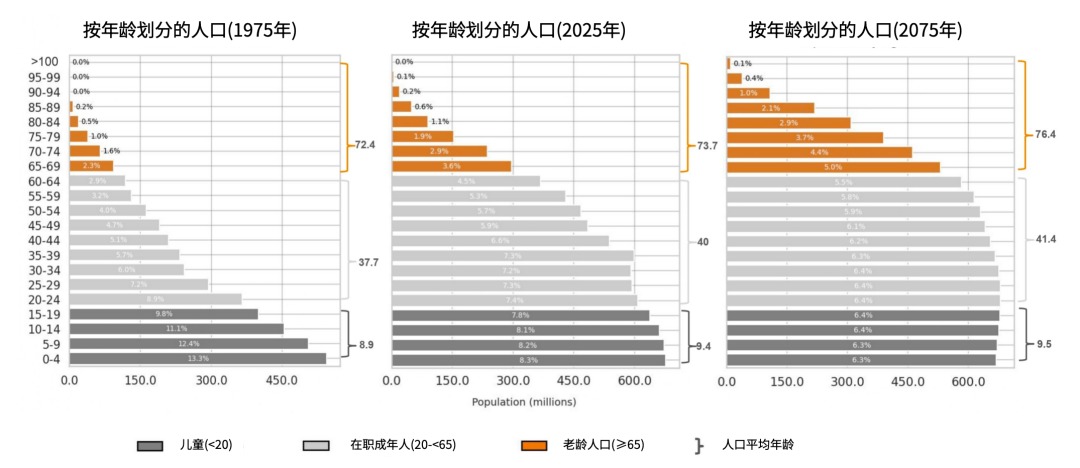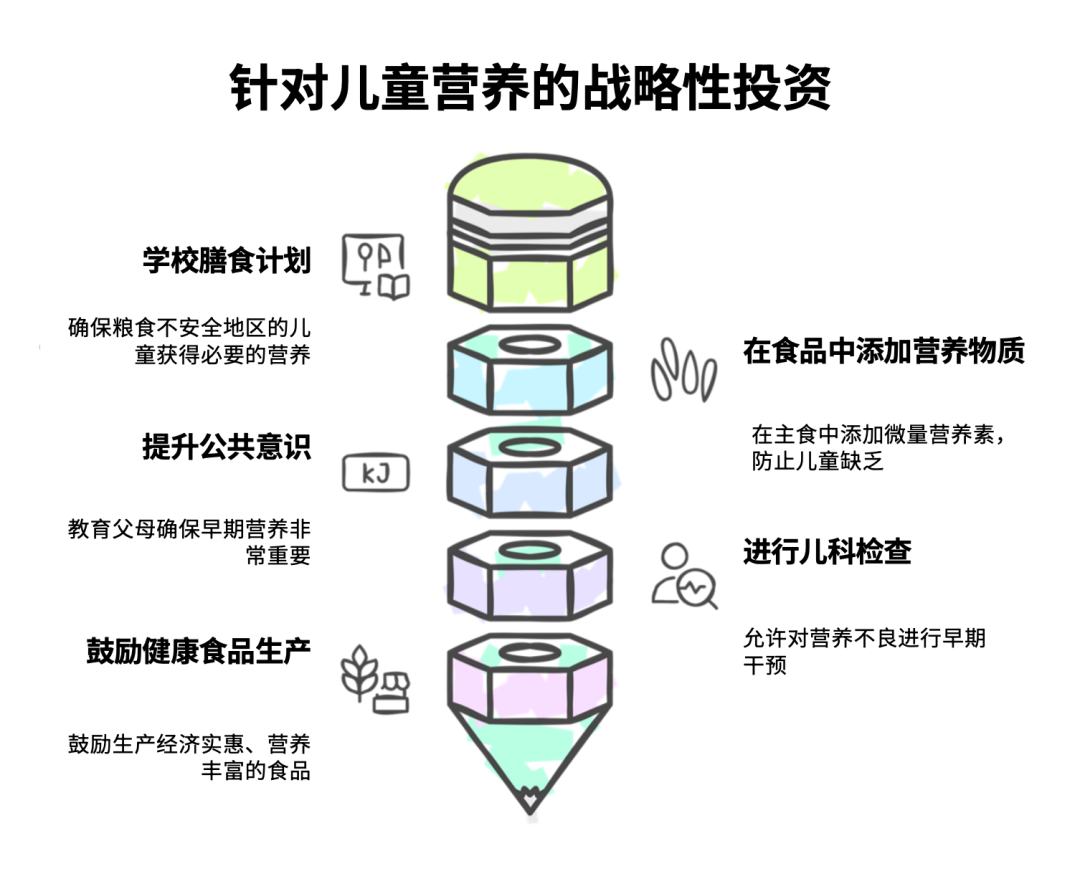

The Global Healthspan Summit, held in Riyadh, the capital of Saudi Arabia, emphasized that maintaining quality of life is a key indicator of progress toward longevity.
Image source: Unsplash/Tanaphong Toochinda
Daniel Mahadzir
Singapore Health Group at Duke-National University of Singapore
Innovative Researcher at the Global Health Institute
Elena Sandalova
Independent Health Science Advisor at the Eureka Translational Medicine Institute
When considering the issue of "longevity, " healthy life expectancy—defined as the period spent living in good health—is just as important as overall lifespan.
Nutrition acquired in early childhood has a significant impact on their future health.
Governments, businesses, and non-governmental organizations must address children’s nutrition issues to ensure equitable health outcomes as the population ages.
According to the World Economic Forum's recently released Global Risks Report, the issue of population aging is more urgent than ever before. The number of adults aged 65 and older continues to grow, while the global average age of the population is also on the rise.
The Global Healthspan Summit, held in Riyadh, the capital of Saudi Arabia, emphasized that maintaining quality of life is a key indicator of extended longevity. Healthspan—defined as the number of years lived in good health—starts early in life, with nutrition during childhood laying its foundation. Without a healthy healthspan, lifespan is likely to be marred by chronic illnesses, disabilities, and soaring healthcare costs—burdens that are already placing a significant strain on the global economy.

The global population situation in 1975, 2025, and 2075.
Image source: Ian Chew/UN
The concept of the developmental origins of health and disease emphasizes that the environment and nutrition experienced during early childhood significantly influence long-term health outcomes. A large, long-term study revealed that inadequate nutrition during growth periods can increase an individual’s risk of developing a range of non-communicable diseases later in life—ranging from cardiovascular diseases to metabolic syndrome. Moreover, insufficient nutrient intake during critical developmental windows not only impairs immune function and cognitive development in childhood but also lays the groundwork for a shorter healthy lifespan in adulthood.
Beyond Lifespan: Why Healthy Life Expectancy Matters So Much
Multiple studies emphasize that optimal nutrition in early life can significantly extend healthy lifespan and reduce the risk of chronic diseases. Nutritional status during childhood not only influences short-term growth and cognitive development but also has a profound impact on maintaining organ function and enhancing stress resilience. Indeed, investing in early-childhood nutrition can yield a genuine "longevity dividend"—a concept suggesting that early interventions do more than just prolong life; they help boost overall vitality, enabling individuals to lead active, productive lives well into their later years.
Strong evidence supports the idea that ensuring comprehensive nutrition during early life—through dietary diversity, adequate intake of micronutrients, and even targeted supplementation—plays a critical role in helping to prevent the long-term consequences of nutritional deficiencies.
High-Tech Longevity and Essential Nutrition
Currently, the focus of longevity research is largely centered on high-cost, cutting-edge therapies. While advanced longevity interventions like gene therapy and cellular reprogramming are undeniably fascinating, their steep price tags make them prohibitively expensive—and could even widen health disparities. As a result, these therapies often remain accessible only to the affluent segments of society, leaving the majority unable to benefit from them.
In stark contrast, nutritional interventions represent a cost-effective and scalable approach to improving public health. The benefits of well-nourished childhoods extend far beyond individual health, contributing to broader economic and social stability. Research shows that enhancing children’s nutrition can lead to better educational outcomes, increased productivity, and reduced healthcare costs. Moreover, the comprehensive dataset from the World Health Organization’s Nutrition Report provides compelling evidence that early nutrition has a profound impact on lifelong health outcomes, linking it to lower rates of chronic diseases and improved cognitive development.
These pieces of evidence further reinforce the idea that the longevity dividend cannot be achieved by focusing solely on cutting-edge, high-cost therapies. Instead, we must return to the basics: ensuring that every child receives comprehensive, balanced nutrition. This approach not only extends lifespan but, more importantly, enhances overall health—making investments in children’s nutrition a critical socioeconomic necessity that helps bridge the gap between different social classes.
The role of vitamin and mineral supplements
Recent high-profile studies have indeed challenged the role of multivitamin and mineral supplements in extending lifespan. However, these findings must be interpreted in context. In fact, these studies typically focus on middle-aged or older adults—groups where opportunities to influence lifelong nutritional patterns are limited. Moreover, these interventions were not specifically targeted at individuals already suffering from particular nutrient deficiencies.
In contrast, evidence suggests that when nutritional supplements are used as an early intervention, they may help address inadequate nutrient intake during critical developmental periods. For instance, data from several long-term studies indicate that children who received targeted micronutrient interventions showed improvements in both cognitive and physical health—trends that persisted into adulthood. This highlights that while targeted supplementation may not miraculously extend lifespan, its strategic application during early development could play a pivotal role in fostering a healthier, more resilient population.
The key is to recognize that nutrition isn’t one-size-fits-all—supplements must be tailored to an individual’s dietary background and evolving needs. Vitamin and mineral supplements shouldn’t be viewed as standalone treatments, but rather as part of a broader nutritional strategy that emphasizes food quality and adequate nutrient intake from the very beginning.

Five strategies to improve investments in children's nutrition.
Image source: Ian Chew/UN
Rethinking the longevity paradigm
Currently, everyone’s attention is focused on funding cutting-edge biomedical interventions, inadvertently causing us to overlook the critical role early nutrition plays in extending both lifespan and healthspan. By reshaping our perspectives on fundamental dietary habits, we can begin paving the way for longevity and healthy aging to become accessible to all—and ultimately anticipate and address the inevitable rise in an aging global population.
Therefore, governments, businesses, and non-governmental organizations must collaborate to address children’s nutrition issues, positioning it as a strategic investment in long-term economic resilience. Policies should include:
Expand the school meal program, ensuring that children in food-insecure areas receive the nutrients they need.
Forcibly fortifying staple foods such as rice, flour, and dairy productsEssential micronutrients in the system, helping to prevent widespread shortages from occurring.
Launch a public awareness campaign, educating parents and caregivers about the importance of early nutrition to encourage behavioral changes and improve dietary patterns.
Conduct routine pediatric malnutrition screeningsIt should be normalized., to enable early intervention.
Food production companies should be encouraged.Producing affordable, accessible, healthier, and nutrient-rich foods.
As disparities in health outcomes continue to widen, particularly in low- and middle-income countries, it’s clear that the promise of longer life spans remains hollow unless it translates into healthy, productive lives for everyone. To ensure that longevity benefits all, we must refocus on the timeless adage "You are what you eat," reaffirming that food and nutrition—fundamentally—hold the key to not only extending our years but also enabling vibrant, thriving lives. Providing young children with adequate nutrition isn’t just a preventive measure—it’s a vital investment in the future well-being of our society.

The above content solely represents the author's personal views.This article is translated from the World Economic Forum's Agenda blog; the Chinese version is for reference purposes only.Feel free to share this in your WeChat Moments; please leave a comment at the end of the article or on our official account if you’d like to republish.
Editor: Wang Can
The World Economic Forum is an independent and neutral platform dedicated to bringing together diverse perspectives to discuss critical global, regional, and industry-specific issues.
Follow us on Weibo, WeChat Video Accounts, Douyin, and Xiaohongshu!
"World Economic Forum"


